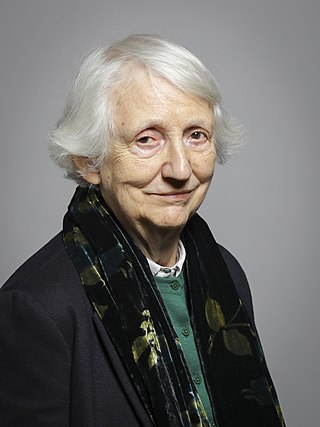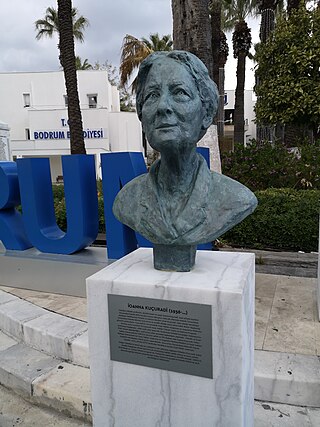Related Research Articles

Bertrand Arthur William Russell, 3rd Earl Russell, was a British mathematician, logician, philosopher, and public intellectual. He had influence on mathematics, logic, set theory, and various areas of analytic philosophy.
Science is a rigorous, systematic endeavor that builds and organizes knowledge in the form of testable explanations and predictions about the world. Modern science is typically divided into three major branches: the natural sciences, which study the physical world; the social sciences, which study individuals and societies; and the formal sciences, which study formal systems, governed by axioms and rules. There is disagreement whether the formal sciences are science disciplines, as they do not rely on empirical evidence. Applied sciences are disciplines that use scientific knowledge for practical purposes, such as in engineering and medicine.

John Bordley Rawls was an American moral, legal and political philosopher in the modern liberal tradition. Rawls has been described as one of the most influential political philosophers of the 20th century.

The American Philosophical Society (APS) is an American scholarly organization and learned society founded in 1743 in Philadelphia that promotes knowledge in the humanities and natural sciences through research, professional meetings, publications, library resources, and community outreach. It was founded by the polymath Benjamin Franklin and is considered the first learned society founded in what became the United States.

Onora Sylvia O'Neill, Baroness O'Neill of Bengarve, is a British philosopher and a crossbench member of the House of Lords.

Nicholas Rescher was a German-born American philosopher, polymath, and author, who was a professor of philosophy at the University of Pittsburgh from 1961. He was chairman of the Center for Philosophy of Science and chairman of the philosophy department.

Kwame Akroma-Ampim Kusi Anthony Appiah is a British-American philosopher and writer who has written about political philosophy, ethics, the philosophy of language and mind, and African intellectual history. Appiah was the Laurance S. Rockefeller University Professor of Philosophy at Princeton University, before moving to New York University (NYU) in 2014. He holds an appointment at the NYU Department of Philosophy and NYU's School of Law. Appiah was elected President of the American Academy of Arts and Letters in January 2022.
Sandra G. Harding is an American philosopher of feminist and postcolonial theory, epistemology, research methodology, and philosophy of science. She directed the UCLA Center for the Study of Women from 1996 to 2000, and co-edited Signs: Journal of Women in Culture and Society from 2000 to 2005. She is currently a Distinguished Professor Emeritus of Education and Gender Studies at UCLA and a Distinguished Affiliate Professor of Philosophy at Michigan State University. In 2013 she was awarded the John Desmond Bernal Prize by the Society for the Social Studies of Science (4S).

Nancy Cartwright, Lady Hampshire is an American philosopher of science. She is a professor of philosophy at the University of California at San Diego and the University of Durham. Currently, she is the President of the Division for Logic, Methodology and Philosophy of Science and Technology of the International Union of History and Philosophy of Science and Technology.

Anthony Clifford Grayling is a British philosopher and author. He was born in Northern Rhodesia and spent most of his childhood there and in Nyasaland. In 2011 he founded and became the first Master of New College of the Humanities, an independent undergraduate college in London. Until June 2011, he was Professor of Philosophy at Birkbeck, University of London, where he taught from 1991. He is also a supernumerary fellow of St Anne's College, Oxford, where he formerly taught.

Philip Stuart Kitcher is a British philosopher who is John Dewey Professor Emeritus of philosophy at Columbia University. He specialises in the philosophy of science, the philosophy of biology, the philosophy of mathematics, the philosophy of literature, and more recently pragmatism.

Hans Köchler is a retired professor of philosophy at the University of Innsbruck, Austria, and president of the International Progress Organization, a non-governmental organization in consultative status with the United Nations. In his general philosophical outlook he is influenced by Husserl and Heidegger, his legal thinking has been shaped by the approach of Kelsen. Köchler has made contributions to phenomenology and philosophical anthropology and has developed a hermeneutics of trans-cultural understanding that has influenced the discourse on the relations between Islam and the West.

James Henry Fetzer is an American professor emeritus of the philosophy of science at the University of Minnesota Duluth, known for promoting conspiracy theories and Holocaust denial. Fetzer has worked on assessing and clarifying the forms and foundations of scientific explanation, probability in science, philosophy of mind, and philosophy of cognitive science, especially artificial intelligence and computer science.
Nancey Murphy is an American philosopher and theologian who is Professor of Christian Philosophy at Fuller Theological Seminary, Pasadena, CA. She received the B.A. from Creighton University in 1973, the Ph.D. from University of California, Berkeley in 1980, and the Th.D. from the Graduate Theological Union (theology) in 1987.
Adolf Grünbaum was a German-American philosopher of science and a critic of psychoanalysis, as well as Karl Popper's philosophy of science. He was the first Andrew Mellon Professor of Philosophy at the University of Pittsburgh from 1960 until his death, and also served as co-chairman of its Center for Philosophy of Science, research professor of psychiatry, and primary research professor in the department of history and philosophy of science. His works include Philosophical Problems of Space and Time (1963), The Foundations of Psychoanalysis (1984), and Validation in the Clinical Theory of Psychoanalysis (1993).

Philosophy is a systematic study of general and fundamental questions concerning topics like existence, reason, knowledge, value, mind, and language. It is a rational and critical inquiry that reflects on its own methods and assumptions.

İoanna Kuçuradi is a Turkish philosopher from Istanbul. She is currently the president of Philosophical Society of Turkey and a full-time academic of Maltepe University.
American philosophy is the activity, corpus, and tradition of philosophers affiliated with the United States. The Internet Encyclopedia of Philosophy notes that while it lacks a "core of defining features, American Philosophy can nevertheless be seen as both reflecting and shaping collective American identity over the history of the nation". The philosophy of the Founding Fathers of the United States is largely seen as an extension of the European Enlightenment. A small number of philosophies are known as American in origin, namely pragmatism and transcendentalism, with their most prominent proponents being the philosophers William James and Ralph Waldo Emerson respectively.
Horace Meyer Kallen was a German-born American philosopher who supported pluralism and Zionism.
Pahalawattage Don Premasiri is a Sri Lankan Buddhist scholar specializing in the areas of Buddhist ethics and Buddhist philosophy. Premasiri's academic training represents a synthesis of both the Buddhist and Western philosophical traditions, first at the University of Peradeniya and subsequently at Cambridge and Hawaii. He is currently president of the Buddhist Publication Society and professor emeritus in the Department of Pali and Buddhist Studies at the University of Peradeniya.
References
- 1 2 "World Philosophy Day". United Nations. Retrieved 13 January 2013.